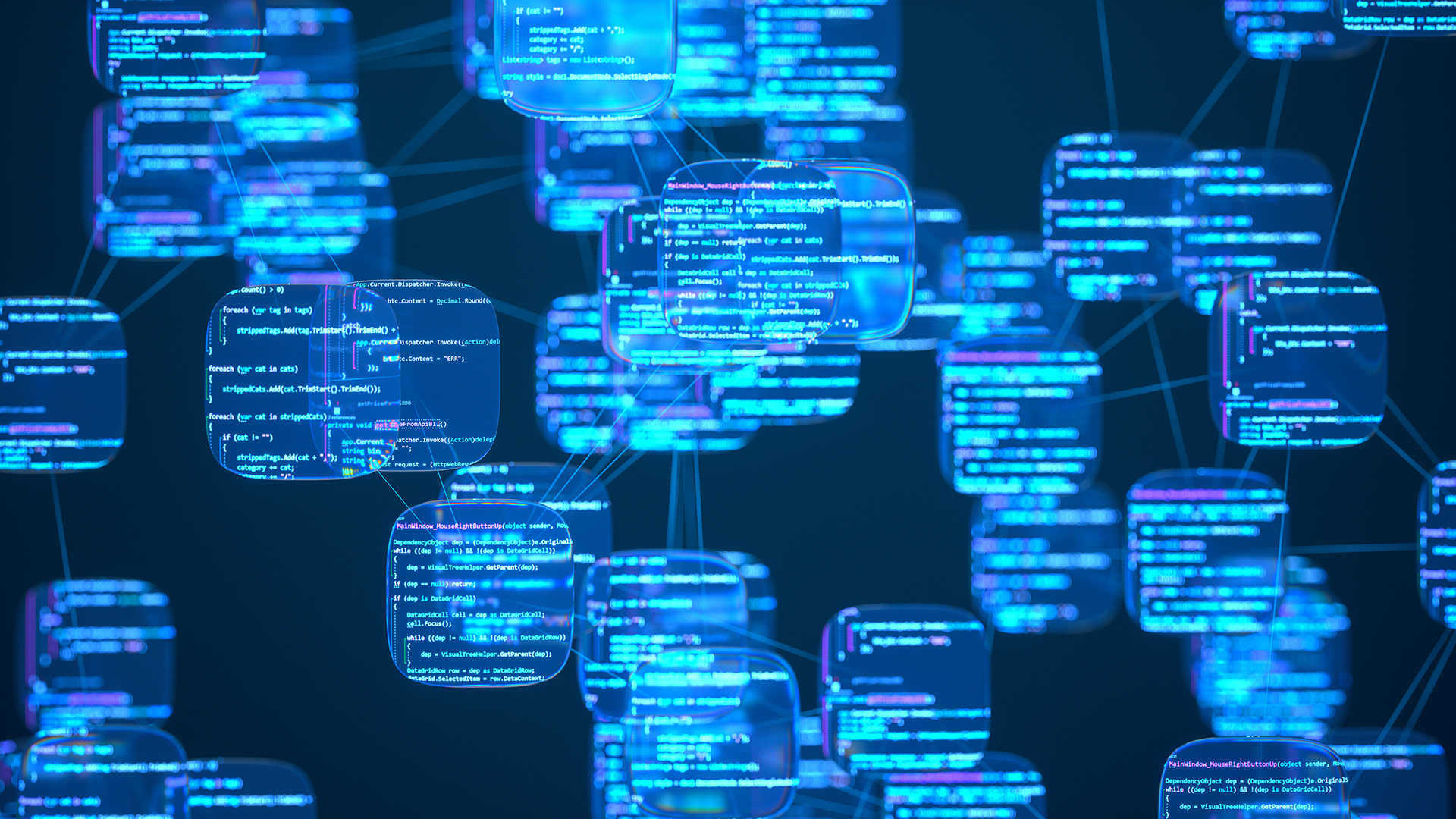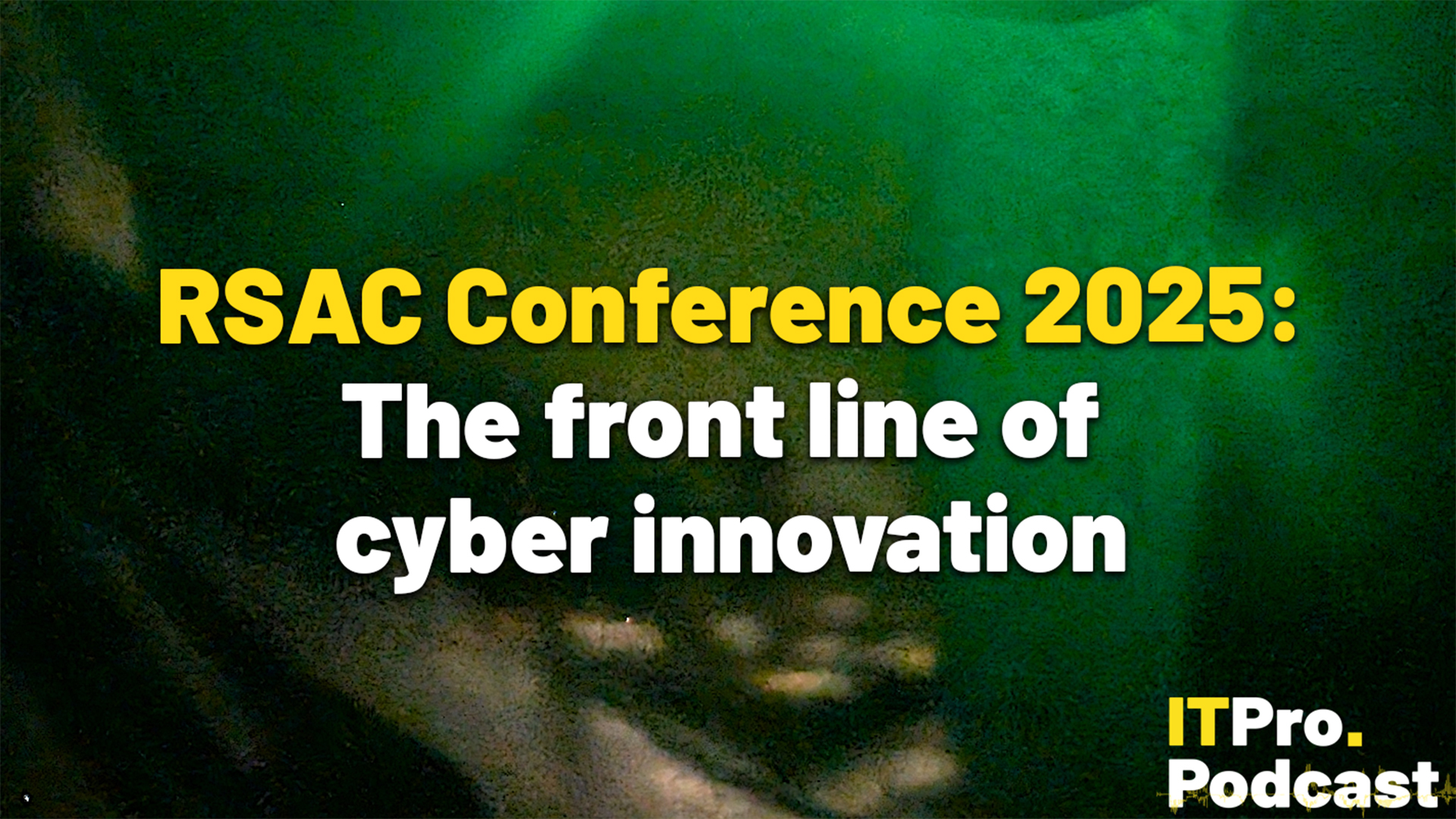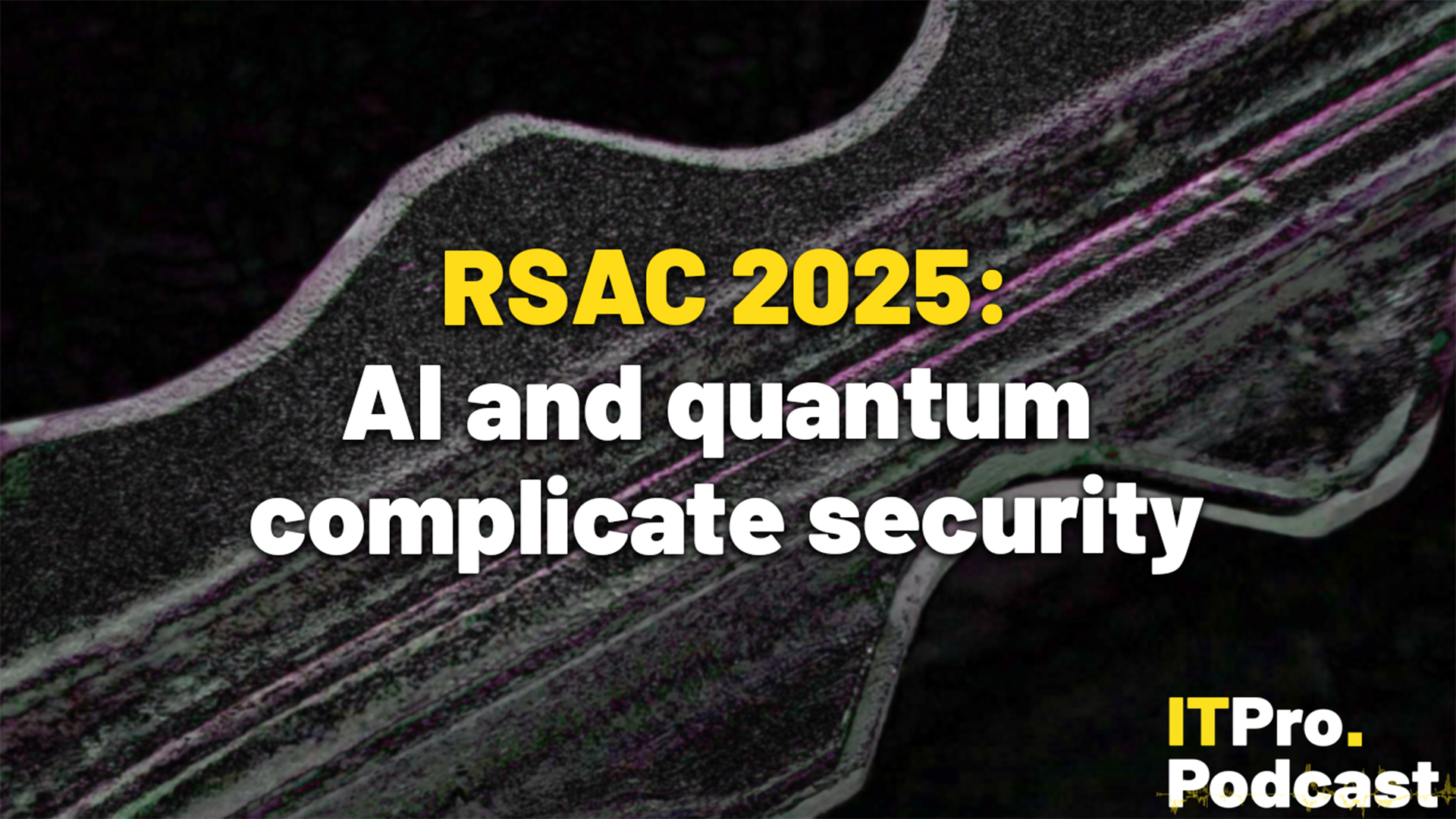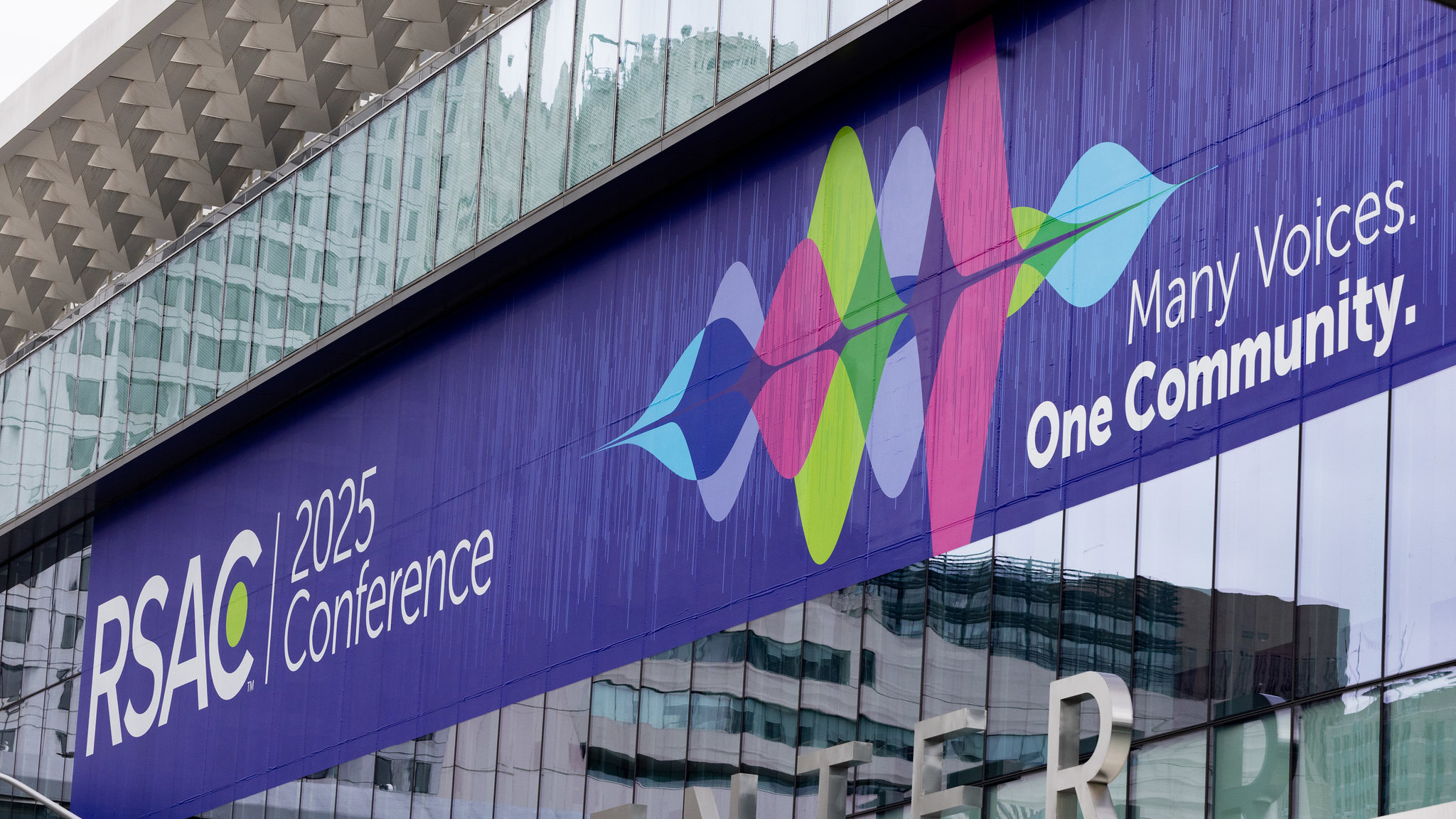Microsoft security boss warns AI insecurity 'unprecedented' as tech goes mainstream
RSA keynote paints a terrifying picture of billion-plus GenAI users facing innovative criminal tactics


Sign up today and you will receive a free copy of our Future Focus 2025 report - the leading guidance on AI, cybersecurity and other IT challenges as per 700+ senior executives
You are now subscribed
Your newsletter sign-up was successful
The rapid, mainstream adoption of generative AI is increasing security risks, resulting in “one of the most complex threat landscapes ever.”
So claims Microsoft's corporate vice president of security Vasu Jakkal, during her keynote speech at the RSA Conference in San Francisco this week.
"Identity-related attacks have increased by 10x just year over year. Cybercrime is both a nation-state and ransomware is a gig economy. If cybercrime was an economy, [or] a country it would be the third largest GDP in the world," Jakkal said.
Jakkal painted a grim picture of AI being a potent tool for attackers to "proliferate malware rapidly and quickly and create new variants, to password cracking more intelligently with more context."
What’s more, she warned that bad actors could abuse AI to "prey on what makes us human - our curiosity using phishing and new techniques there."
The security boss highlighted voice imitation attacks, noting "just a three-second voice sample can train a GenAI model to sound like anyone." She also flagged emerging threats like AI model poisoning, prompt injection attacks, and risks around AI training data.
Despite the dangers, Jakkal struck an optimistic tone about AI's potential benefits if secured properly, from healthcare breakthroughs to personalized education. "Imagine if we could use AI to reach the millions and billions around the world in rural corners in education," she posited.
Sign up today and you will receive a free copy of our Future Focus 2025 report - the leading guidance on AI, cybersecurity and other IT challenges as per 700+ senior executives
To better protect AI systems, Microsoft recommends a three-pillar strategy, according to Jakkal:
- Discover all AI usages and map risks
- Protect by mitigating risks through measures like zero trust and data controls
- Govern AI through risk-based policies, compliance tracking, and user education
"Governance is about human agency. It’s making sure we put ethics, [and] we put humans at the front and at the heart of technology to understand how we should build this safely, deploy this safely, and use this safely," Jakkal stated. "We need to be really thoughtful about this."
RELATED WHITEPAPER

The security leader issued a call to arms for defenders to rise to the AI security challenge: "You are the heart of trust in the heart of an organization's trust in AI. You're the ones who provide a safe and secure space for exploration. You are the Yes for AI," she said.
"I invite you to join me fearlessly, bravely, keeping security at the heart, and with care together. I invite you to freely dream big, to make our world safer, and to work together because I think it's going to be a beautiful world."
Rene Millman is a freelance writer and broadcaster who covers cybersecurity, AI, IoT, and the cloud. He also works as a contributing analyst at GigaOm and has previously worked as an analyst for Gartner covering the infrastructure market. He has made numerous television appearances to give his views and expertise on technology trends and companies that affect and shape our lives. You can follow Rene Millman on Twitter.
-
 AI-generated code is fast becoming the biggest enterprise security risk
AI-generated code is fast becoming the biggest enterprise security riskNews Security teams are scrambling to catch AI-generated flaws that appear correct before disaster strikes
-
 Sundar Pichai hails AI gains as Google Cloud, Gemini growth surges
Sundar Pichai hails AI gains as Google Cloud, Gemini growth surgesNews The company’s cloud unit beat Wall Street expectations as it continues to play a key role in driving AI adoption
-
 RSAC in focus: Key takeaways for CISOs
RSAC in focus: Key takeaways for CISOsThe RSAC Conference 2025 spotlighted pivotal advancements in agentic AI, identity security, and collaborative defense strategies, shaping the evolving mandate for CISOs.
-
 RSAC in focus: Quantum computing and security
RSAC in focus: Quantum computing and securityExperts at RSAC 2025 emphasize the need for urgent action to secure data against future cryptographic risks posed by quantum computing
-
 RSAC in focus: How AI is improving cybersecurity
RSAC in focus: How AI is improving cybersecurityAI is revolutionizing cybersecurity by enhancing threat detection, automating defenses, and letting IT professionals tackle evolving digital challenges.
-
 RSAC in focus: Collaboration in cybersecurity
RSAC in focus: Collaboration in cybersecurityExperts at RSA Conference 2025 emphasised that collaboration across sectors and shared intelligence are pivotal to addressing the evolving challenges of cybersecurity.
-
 RSAC in focus: Considerations and possibilities for the remainder of 2025
RSAC in focus: Considerations and possibilities for the remainder of 2025As 2025 unfolds, RSAC explores the pivotal considerations and emerging possibilities shaping the cybersecurity landscape
-
 RSAC Conference 2025: The front line of cyber innovation
RSAC Conference 2025: The front line of cyber innovationITPro Podcast Ransomware, quantum computing, and an unsurprising focus on AI were highlights of this year's event
-
 RSAC Conference 2025: AI and quantum complicate security
RSAC Conference 2025: AI and quantum complicate securityOrganizations are grappling with the complications of adopting AI for security
-
 RSAC Conference 2025 was a sobering reminder of the challenges facing cybersecurity professionals
RSAC Conference 2025 was a sobering reminder of the challenges facing cybersecurity professionalsAnalysis Despite widespread optimism on how AI can help those in cybersecurity, it’s clear that the threat landscape is more complex than ever
